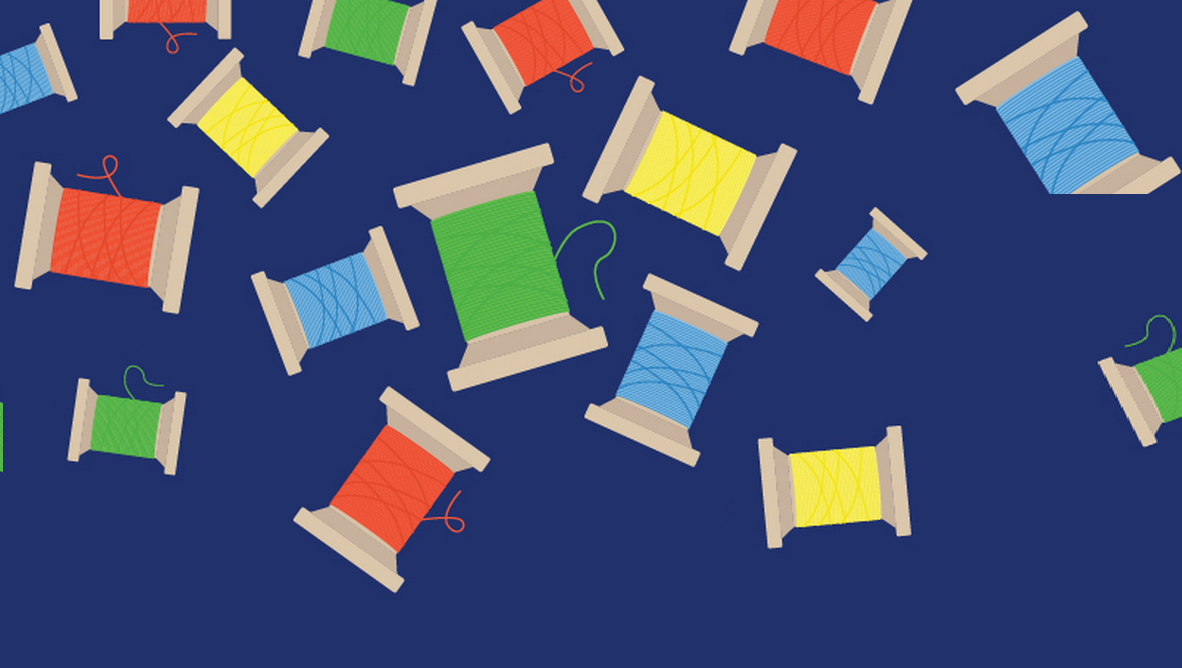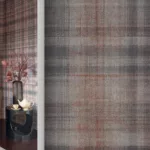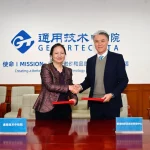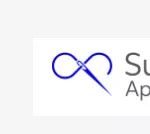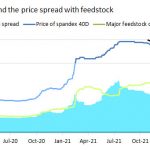An Overview of Lithuanian Textiles, Apparel and Leather Industry (NACE C13, C14, C15)
- In 2019 the textiles, clothing and leather industries accounted for about 1.5 % of GDP. At the beginning of 2021 this industry has employed around 24 thousand workers or 2.5 % of total employment.
- 933 enterprises were active in the industry at the beginning of 2021 and 98% of them were small and medium sized enterprises (SMEs) with 1-249 persons employed.
| Indicator | 2017 | 2018 | 2019 | 220 | 221 |
| Number of enterprises | 922 | 935 | 955 | 947 | 933 |
| Number of employees | 28,505 | 28,006 | 27,632 | 25,848 | 23,900 |
Source: Statistics Lithuania.
- In 2019 production of the textiles, clothing and leather industries amounted to 0.9 billion EUR, which was 1.5% less than in 2018.
| Indicator | 2016 | 2017 | 2018 | 2019 | 2020 |
| Exports of goods of Lithuanian origin (million EUR) | 784.9 | 794.4 | 796.3 | 758.5 | 673.2 |
| Production value (million EUR) | 858.6 | 878.2 | 940.9 | 926.8 | – |
Source: Statistics Lithuania.
- In 2020 domestically produced textiles, clothing and leather exports value declined by 11% and amounted to about 0.7 billion EUR. In 2020 exports of domestically produced goods consisted mainly of apparel (not knitted or crocheted) (21%), apparel (knitted or crocheted) (20%) and other made-up textile articles (14%). The decline in domestically produced exports in 2020 was mainly driven by the decrease of exports of apparel (not knitted or crocheted) – the exports value decreased by 51 million EUR (or 27%) to 142 million EUR. Whereas the largest increase in exports in 2020 was recorded for other made-up textile articles – the value increased by 17 million EUR (or 22%) to 94 million EUR.
- The most important exports markets for the domestically produced textiles, clothing and leather industry in 2020 were Germany (15), the United Kingdom (11%) and Denmark (9.9%). Countries in the European Union accounted for 81% of exports by the textiles, clothing and leather industry in 2020. The exports of domestically produced textiles, clothing and leather industry in 2020 decreased most significantly to Germany (the exports value decreased by 20 million EUR or 16%), whereas the largest increase in exports was recorded for the Netherlands (the exports value increased by 7.6 million EUR or 33%).
Exports of Lithuanian produced textiles, apparel and leather by category, million EUR
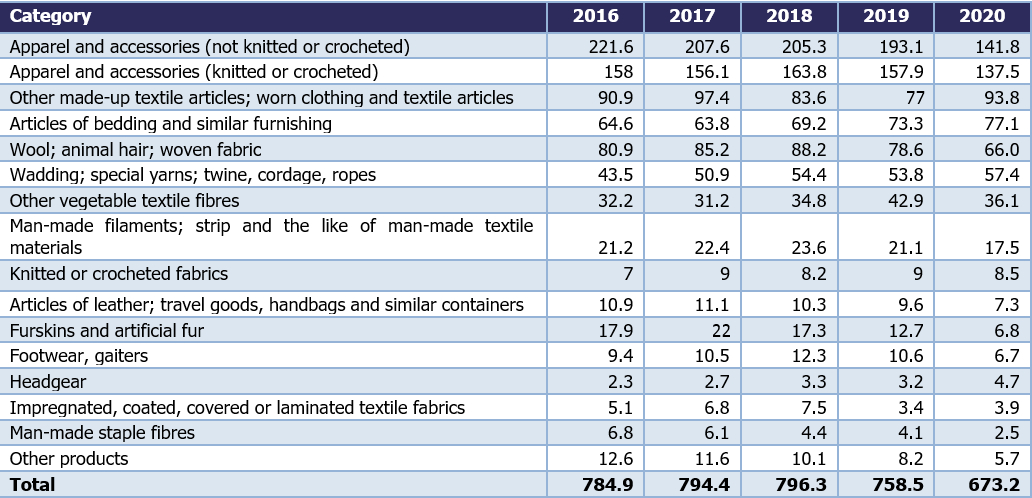
Source: Statistics Lithuania.
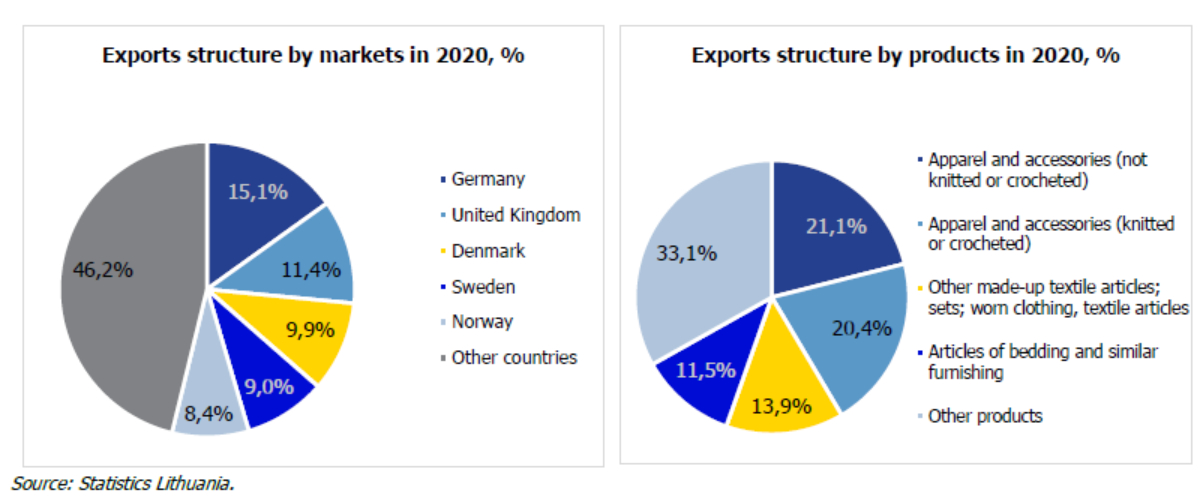
Strengths of Lithuanian textile, apparel and leather industry:
► Good quality – price ratio;
► Business experience in Western Europe and other countries (especially CIS);
► Ability to produce in small batches with short production and delivery times;
► High technological and linguistic staff competence and work culture;
► Integration into global value chains.
List of Lithuanian Textiles, Apparel and Leather Units
(Courtesy: Enterprise Lithuania)
